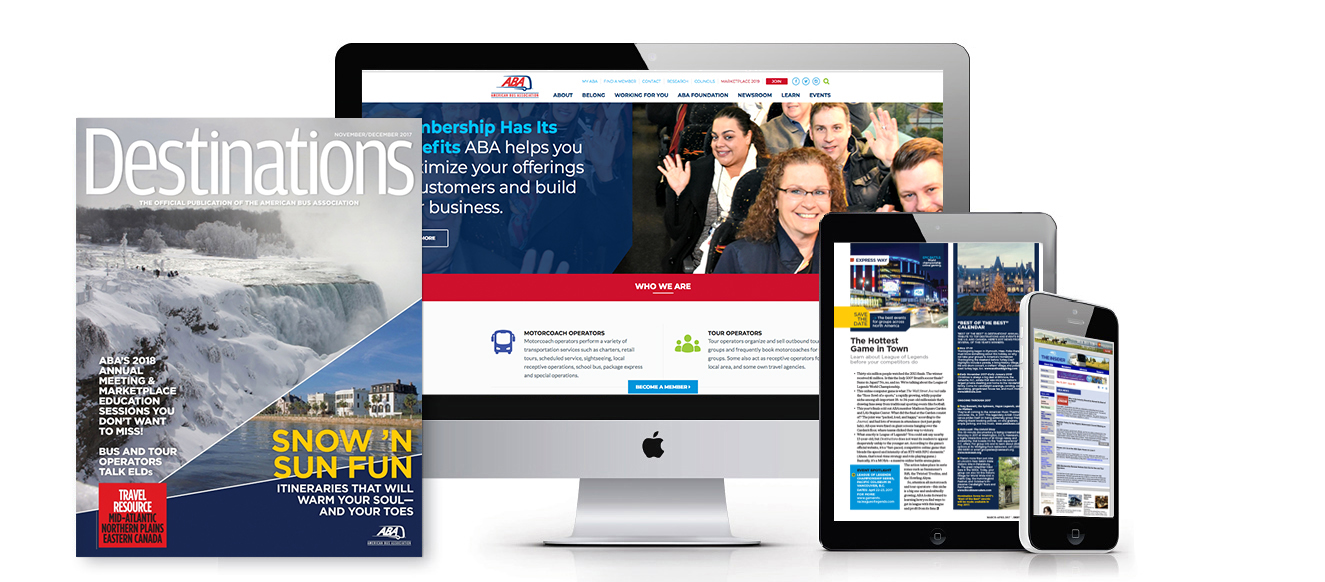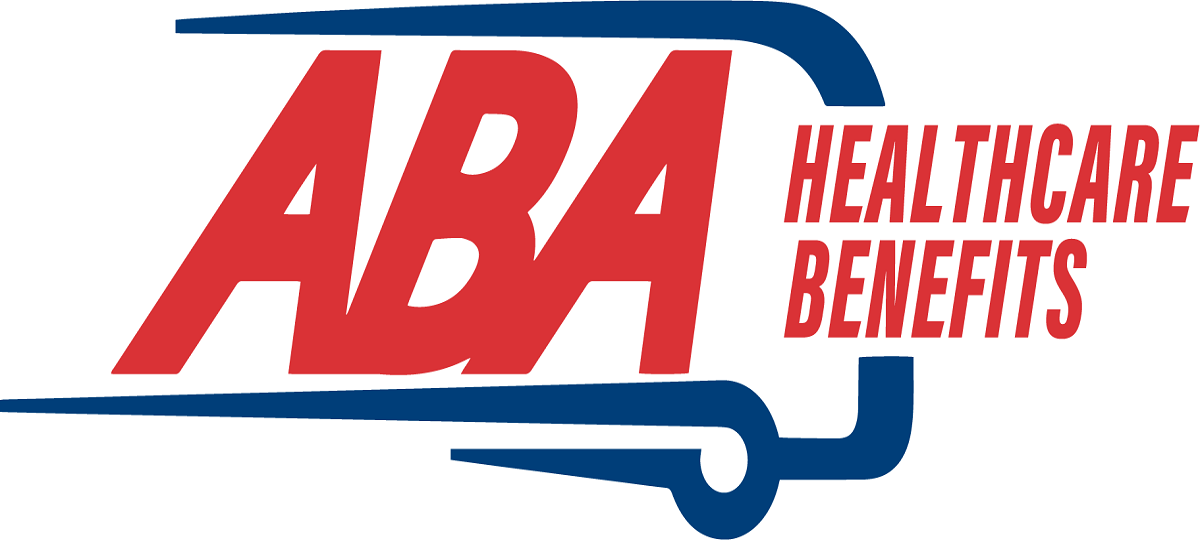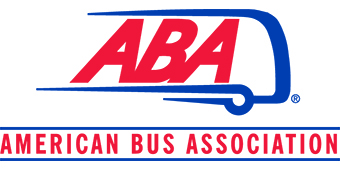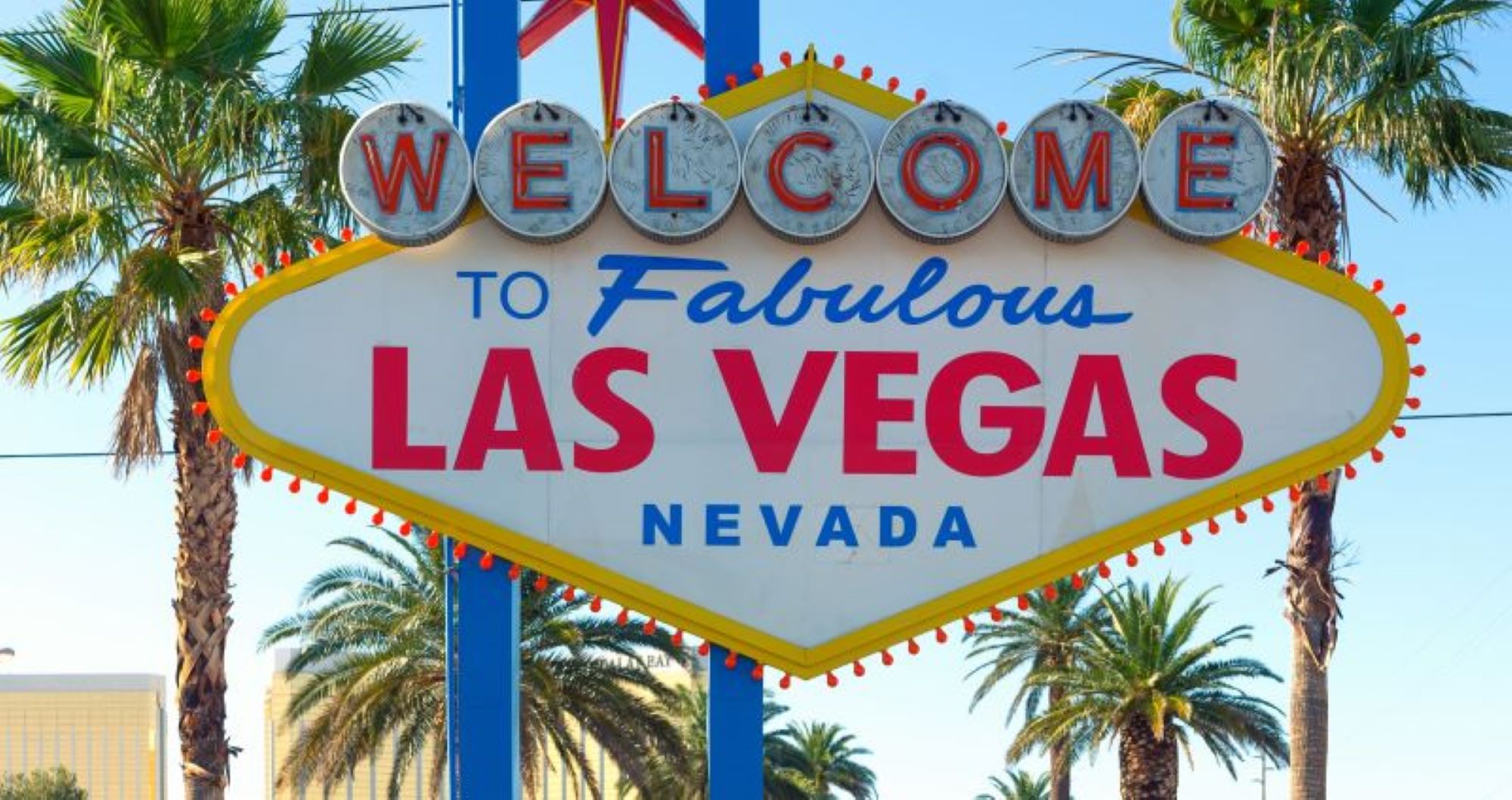A Safer Course: Recapping the ‘Our Roads, Our Safety’ Fair
ABA recently participated in FMCSA’s Our Roads, Our Safety Fair, which showcased a range of initiatives and technologies dedicated to enhancing transportation safety.

ABA and YGS Association Solutions, ABA’s publishing partner, provide you with extensive opportunities to reach and influence 750+ motorcoach operators throughout the year in any of our content offerings.
Advertise With Us!
Discover a transformative approach to health benefits. Learn how Individual Coverage HRAs (ICHRAs) and Defined Contribution Health Plans offer a fresh perspective on providing healthcare. It’s all about striking the perfect balance between comprehensive employee coverage and significant cost savings for employers. Webinar | May 14 | 2 p.m. ET
More information
Gather, share and network monthly with other members of the Women in Buses Council the third Wednesday of each month. Zoom | May 15 | 1 p.m. ET
Register now
Dial in and see what is on the minds of your fellow AAMC members. Everyone who supports the mission of the AAMC is welcome. Zoom | May 15 | 3 p.m. ET
Register now
In-person | May 21 | 9 a.m. PT The Hispanic Motorcoach Council is hosting a day-long spring event tailored to the needs of Hispanic and indigenous business owners in the industry. It will take place in Las Vegas, Nevada at the Park MGM Las Vegas from 9 a.m. to 4 p.m.
More information
Our Member Orientation Webinar will introduce you to the team at ABA and show you how to make the most of your membership. Webinar | May 23 | 3 p.m. ET
Register1/5
In our March/April 2024 issue, we celebrate and revisit all things Marketplace—candid photos from the event, award winners, and sponsors. We also explore Pigeon Forge, Tennessee, and The West.
View IssueMany of the comments I received about this year’s Marketplace in Nashville, Tenn., were a fervent “The event was amazing!” And why wouldn’t it be? Held Jan. 13–16 at Music City Center, Marketplace saw more operators taking business appointments than ever before (with over 300 operators on the business floor), more than 1,000 motorcoach and tour operators under one roof, nearly 3,000 attendees from every part of North America and overseas, and the most sponsors ever at more than 120.
Have a question? Ideas for new content? ABA wants your thoughts on this new resource and how it can better serve our members.
Send Feedback© 2024